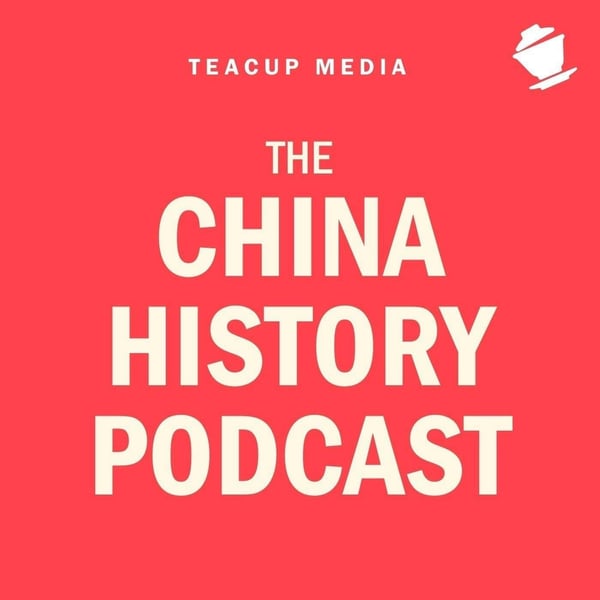Ep. 361 | McKinley, Tariffs, and the Open Door Policy
The China History Podcast
Laszlo Montgomery
4.8 • 1.2K Ratings
🗓️ 2 April 2025
⏱️ 44 minutes
🧾️ Download transcript
Summary
Just in time for Liberation Day, I'm presenting this timely episode. Back in 1890, with the aim of protecting American companies from foreign competition, tariffs were jacked up significantly. With all the advances in transport, logistics, and new technologies, world trade was shifting into a higher gear. For a few centuries, the Ming and Qing emperors did their damnedest to regulate the invasion of European traders clamoring to do business with Chinese merchants. The foreigners wanted free, open, and unfettered trade with China. By the 1890’s and a few humiliating unequal treaties later, the dream finally came true. That’s when the real problems started. Thanks to Dan Stein for this topic idea we discussed over lunch recently. If you'd like to support the China History Podcast and listen ad-free and get new episodes weeks or months early:
CHP Premium: https://teacupmedianetwork.supercast.com/, CHP Patreon: https://www.patreon.com/c/TheChinaHistoryPodcast
Transcript
Click on a timestamp to play from that location
| 0:00.0 | Hi, everyone. Welcome back to the China History podcast. I'm Laslo Montgomery. My thanks and appreciation to |
| 0:05.9 | every one of you for tuning in and spending some time with me. I have to give credit to the new |
| 0:11.4 | Trump administration and to the president himself who inspired me to cover this topic when he |
| 0:18.2 | evoked the name of one of the main characters of today's tale, |
| 0:22.6 | the 25th president of these United States, William McKinley. |
| 0:27.5 | Born in Niles, Ohio, January 29, 1843, Niles, Ohio, also the birthplace of Harry M. Stevens, |
| 0:35.6 | inventor of the hot dog, and, well, being from Chicago, |
| 0:39.1 | that's important to me, everything on it. For anyone paying attention to their news feeds, |
| 0:45.2 | William McKinley's been getting more than his traditional amount of ink and has made some headlines |
| 0:51.2 | since President Trump took office in January this year, 2025. |
| 0:58.0 | Tariffs, tariffs, and tariffs. |
| 1:00.8 | William McKinley? |
| 1:02.1 | He loved his tariffs. |
| 1:03.8 | Mr. Trump affably called him the tariff sheriff, |
| 1:07.0 | and today's so-called Trump tariffs have been compared to McKinley's tariffs of 1890. |
| 1:15.0 | Now, McKinley wasn't president yet in 1890, but as a congressman from the great state of Ohio, |
| 1:20.9 | he championed the Tariff Act of 1890 and acted on China's future National Day, October 1st. |
| 1:28.3 | And with the stroke of a pen, then President Benjamin Harrison, signed it into law. |
| 1:34.8 | What it did, essentially, was raise the average tariff to 48%. |
| 1:39.8 | There was a reciprocity clause that allowed for exceptions, |
| 1:43.6 | where certain trading nations gave the U.S. a break, and of course for commodities that America couldn't live without. That all sort of sounds familiar. These tariffs remained in place for four years until they were replaced by a less harsh Wilson-Gorman tariff Act of 1894 that lowered the McKinley |
| 2:02.9 | tariffs. But then came the Dingley Terriff Act in 1897, that raised them again, and you all know |
... |
Transcript will be available on the free plan in 1 days. Upgrade to see the full transcript now.
Disclaimer: The podcast and artwork embedded on this page are from Laszlo Montgomery, and are the property of its owner and not affiliated with or endorsed by Tapesearch.
Generated transcripts are the property of Laszlo Montgomery and are distributed freely under the Fair Use doctrine. Transcripts generated by Tapesearch are not guaranteed to be accurate.
Copyright © Tapesearch 2025.

